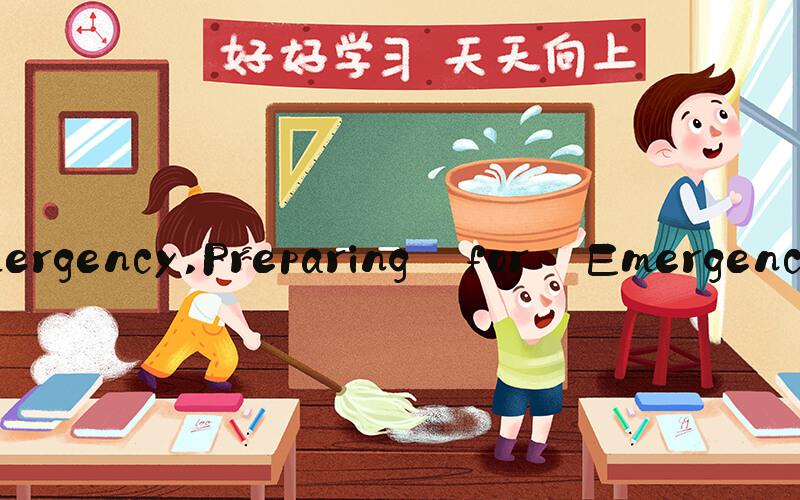AI答案
 Emergency: When Every Second Counts
Emergency: When Every Second CountsAn emergency is a situation that presents an immediate risk to health, life, property or environment. It may be caused by natural disasters, accidents, conflicts or medical conditions. In any case, every second counts, and it is important to respond quickly and appropriately in order to minimize the damage and save lives.
Preparing for EmergenciesPreparing for emergencies involves taking steps to reduce the risk of emergencies happening, and having a plan in place for what to do when an emergency occurs. It is important to have emergency supplies on hand, such as food, water, first aid, and communication tools. It is also important to have a communication plan that includes meeting places and contact information for family members and friends.
In addition, it is important to stay informed about potential emergencies in your area. This can be done by following local news and weather forecasts, signing up for emergency alerts from local authorities, and participating in community emergency preparedness programs.
Responding to EmergenciesWhen an emergency occurs, it is important to stay calm and take immediate action. The first step is to assess the situation and determine what kind of emergency it is, and what kind of response is needed. If it is a medical emergency, calling 911 or the local emergency number is the first priority. If it is a natural disaster, such as a tornado or earthquake, sheltering in place or evacuating to a safe location may be necessary.
It is important to follow any instructions given by emergency responders, such as firefighters, police officers, or paramedics. If you are able to do so safely, you may be able to assist in the response efforts by providing first aid, helping to evacuate people, or providing information to responders.
Recovering from EmergenciesOnce the immediate threat of an emergency has passed, it is important to focus on recovery efforts. For example, if a natural disaster has occurred, efforts may include clearing debris, repairing damaged infrastructure, and helping affected individuals and families to rebuild. In the event of a major medical emergency, recovery efforts may involve rehabilitation and psychological support for those affected.
It is also important to take steps to prevent similar emergencies from happening in the future. This may involve investing in infrastructure improvements, upgrading emergency response capabilities, or increasing public awareness about potential emergency risks and how to prepare for them.
ConclusionIn conclusion, emergencies can happen at any time, and it is important to be prepared to respond quickly and effectively. By taking steps to prepare for emergencies, responding appropriately during emergencies, and focusing on recovery efforts afterwards, we can minimize the damage and save lives. Remember, every second counts in an emergency, so it is important to stay calm, take immediate action, and work together to overcome the challenges that emergencies present.
